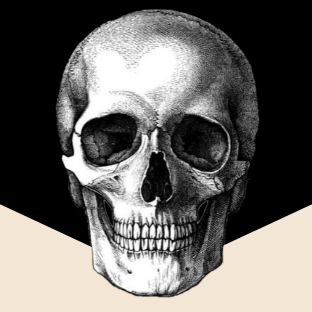A fictional reenactment of the pilgrims’ first day ashore in the New World on what is now the Provincetown Peninsula at the end of Cape Cod. Captain Miles Standish has organized a reconnoiter, and among the party is young William Bradford, who will become leader of the Plymouth Colony.
After three days, having refreshed ourselves upon the cold and deep harbor, seventeen of our number set out from the Mayflower to perceive the worth of this narrow parcel. As captain, I desired an adventure to cleave the rust from men and muskets. The woods thereabout were thick-grown and full of thorns, so we were relieved to come upon sand hills. Though, to walk on sand is no great joy after a fair turn of the clock.
Presently, we came to a huge inland sweep of the harbor at the end of which was a long marsh. All the while, we were upon the stretch of sand hills and eagerly sought the firm high ground across the marsh. Some of our party, to save time, wanted to wade the marsh, but our clothes were already wet from wading ashore, and there were signs of affliction in a few noses. So I forced us farther upon the sand, and when we had finally circumvented the marsh to higher ground, I thought, Here we are all the same. Does it matter if we are an hour later in a course that is a thousand leagues from yesterday and knows not one foot of tomorrow?
That evening, we chose a low hill with a good view on which to sleep our first night on the coarse bosom of this wild land. No adventure of any sort had fallen to us, but we set out watches after I warned the men that an idle musket and a mind gone home invite a knife to the throat.
I lay down, one eye upon the stars, the other upon the watch, the better both to observe and protect my life. Lady Sleep was slow to my bed but quick to leave.
I awoke before the first light of my first new world sunrise, having suffocated the others in the bowels (an unpleasantly accurate word) of our ship. Our party brushed the web of night from its stiff joints and set to breakfast – this a looseness of language, for to call breakfast what we also eat at noon and supper is more a nod to custom than to appetite. We chewed – nay, remilled – hardtack thrice daily with no other encouragement than a will to live and hunger’s great tolerance. Two months on the Mayflower of stale September and October flour, and now November flour, were enough to set a man against an army to gain half an acre of seed-wonting soil.
Nor was our water good, it being bitter upon the palate after so much steeping of staves. Tillman, overthrown by desire, cried out for “a cup of tea or, in the name of God, I’ll be the Devil.” And that sparked a fire to appease the devil in us all. How unhappy our lot, that the Devil collects the tolls on God’s highway.
After tea, I once again advised the men in the deportment of their muskets, so that, though not knowing the dangers of the place, we might at least not be a danger to ourselves. Other than myself, there is hardly a soldier among us. This was a great wonder to me, and gnawed at the edge of my sleep. For we had fled half a world – more, from one to another – without notion of conquest, with guessed-at charts, and only tales for experience. I fear it was our ignorance that got us here as much as our courage.
On our way to higher ground, we found a spring welling with fresh water. Two months’ deprivation was not only ended but nearly justified by the sudden pleasure. Even so, a few restrained themselves, afraid of a suspected vileness, as if the elements might differ here. But upon the hungry gulpings by most, the few fell to it.
Here we stopped for another round of hardtack and a better cup of tea. I sat and talked the while with William Bradford. We have grown fond. His head is made of enough solid stuff to anchor our people. William leads not by force of will but by example of his virtue. I am envious, but I am also joyed to see the subtle accumulation of power in one who does not seek it.
“You bring your journal even on this damp adventure,” William said.
“It is my weaving,” I replied. “It not only empties my head of its mundane businesses but fills it up again with play.”
“How fare I in it, if at all I be there?”
“You fare well. That is, if you consent to be the fool to me as king.”
“I’ll be the fool but to no king.”
“If there is no king, the fool may lead.”
“Then they are fools who follow.”
“That is a proper government . . . .”
Richard LeBlond is a retired biologist living in North Carolina. His essays and photographs have appeared in many U.S. and international journals, including Montreal Review, Redux, Compose, Concis, Lowestoft Chronicle, Trampset, and Still Point Arts Quarterly. His work has been nominated for “Best American Travel Writing” and “Best of the Net.”
